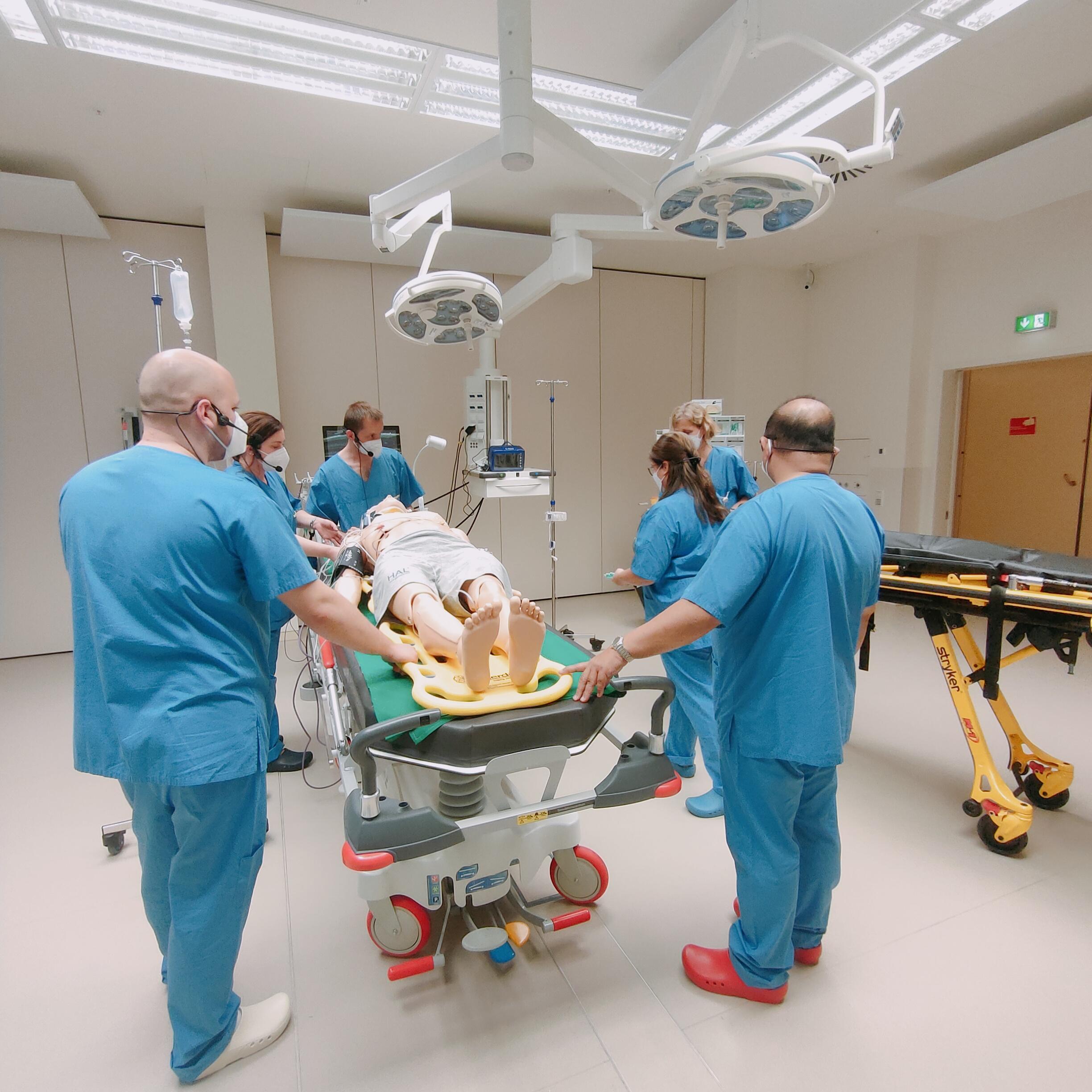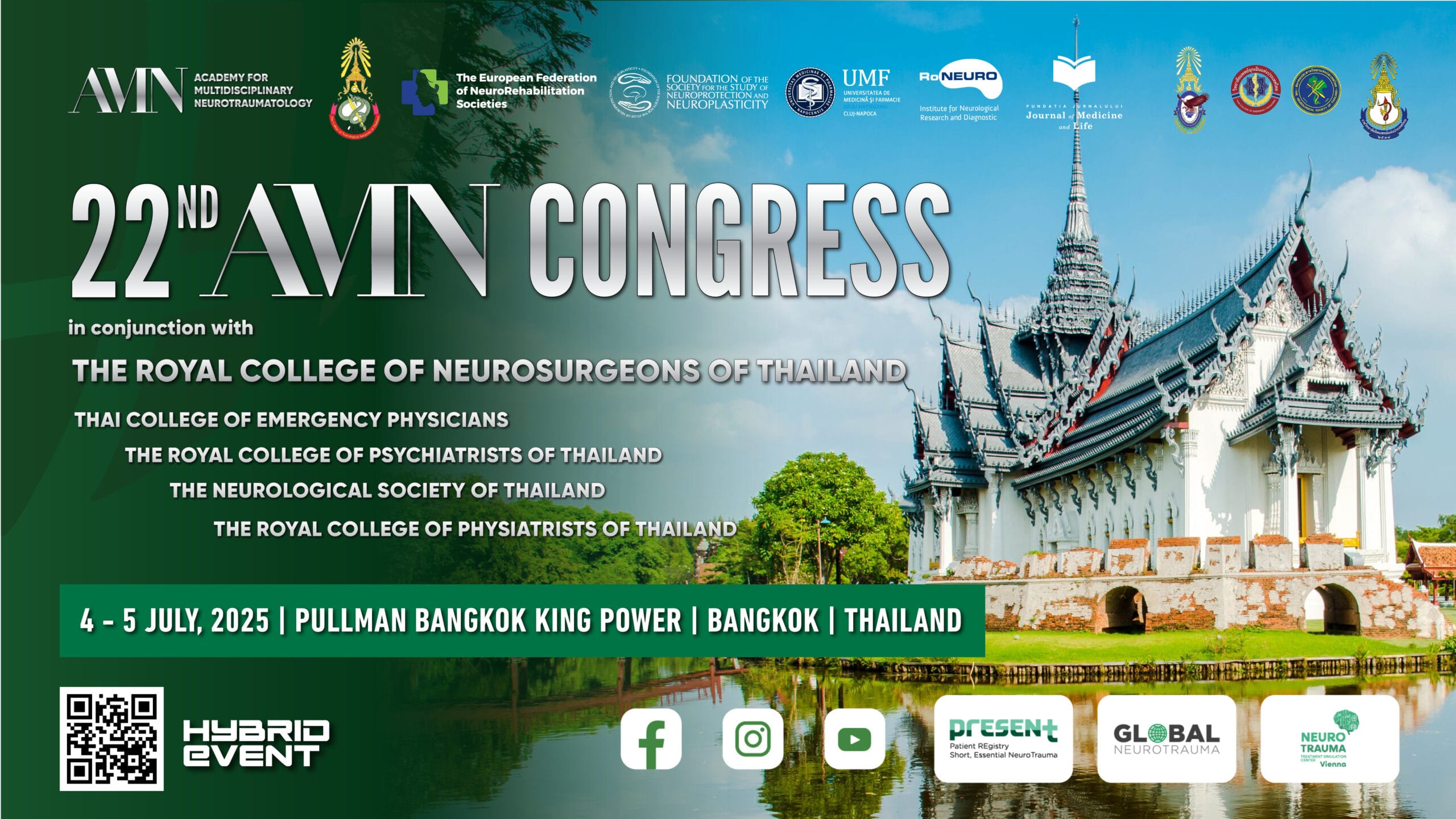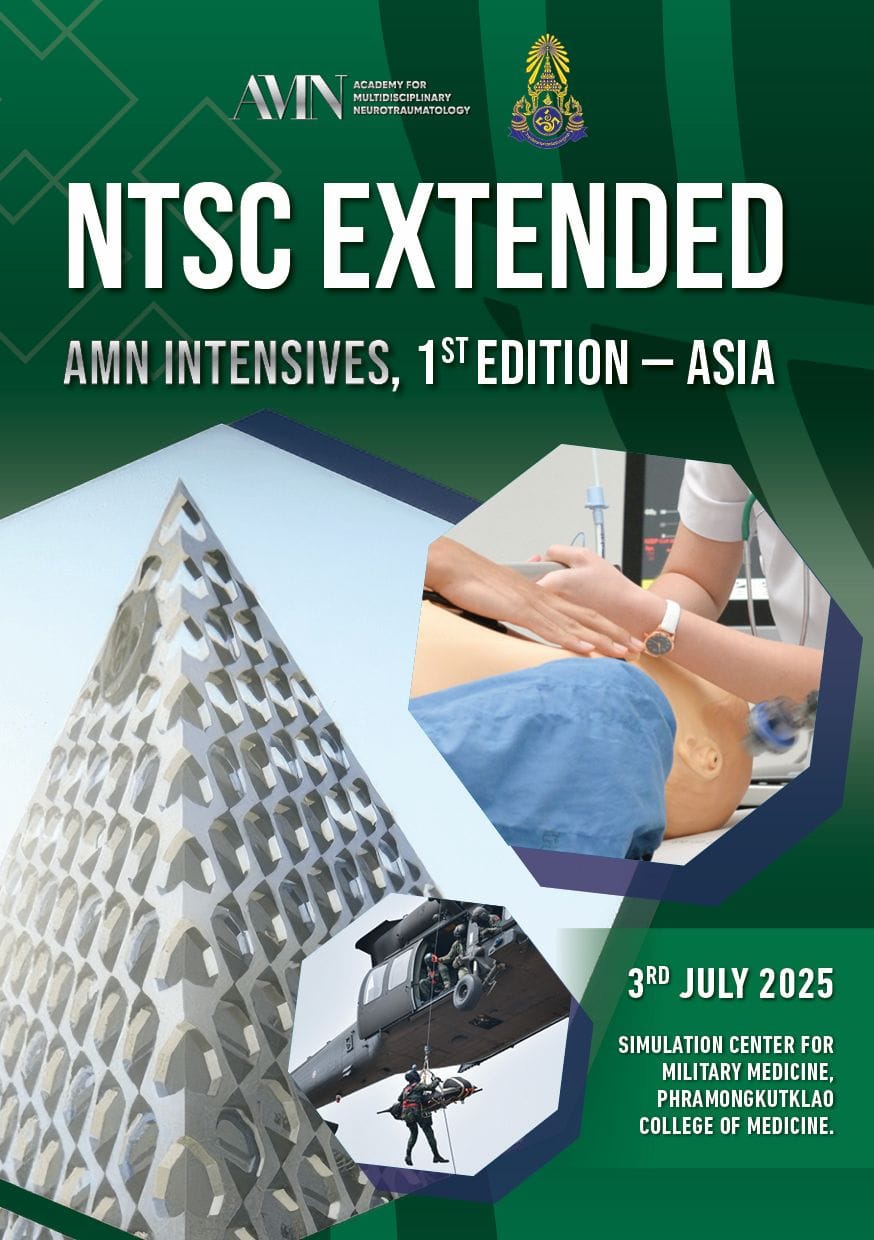Author: Padurean Vlad Adrian (Neurosurgery Department, County Emergency Hospital, Cluj-Napoca, Romania)
Neurotrauma Treatment Simulation Center (NTSC) represents a training program developed by leading healthcare institutions in Vienna, focusing on the patient’s pathway to recovery. During NTSC, participants from 6 country delegations developed their knowledge and skills and prepared an implementation plan for the multidisciplinary treatment of neurotrauma. The event also showcased the importance of long-term follow-up and tried to address specific gaps in neurotrauma research and treatment, such as the lack of epidemiological data and treatment nihilism about cognitive, behavioural and depressive disorders.
As a neurosurgeon, I must confess that this was the first scientific event I have taken part in that was not exclusively about neurosurgery. This fact alone probably made the entire experience so unique for my current and future practice. In treating a neurosurgical case, as far as I have witnessed, every person involved, be it a doctor or a nurse, has her own narrow task that she focuses on. In most cases, this is for the best of the patient but sometimes, peeking “over the fence” to the closely related medical specialties and bringing your own contribution is what is needed for the wholesome management of a patient. Surgical specialties, in particular, are considered quite secluded from medical ones, probably because surgeons are the only ones knowing what is being performed in the narrow operating field during surgery and are seldom open enough to express or share their thoughts. But, again, in most cases, matters turn out well enough just like this. Nevertheless, in critical situations, where neurosurgeons, anesthesiologists and neurologists are overwhelmed by the complexity of the case, communication without borders is of the essence.
The organizers at NTSC have tried to bridge precisely that gap, that lack of communication across medical specialties. The first sign of successfully managing this was our group’s heterogeneity: a few neurosurgeons, a handful of anesthesiologists and a crew of neurologists. The second of similar importance, is that we were not aware of what we were in for or what to expect. Also, the masterminds behind the NTSC have thought out a simple and straightforward schedule: to experience first-hand how the chain of survival is being held together in a country like Austria by taking us from the first emergency response team in the prehospital phase at the Christophorus 3 Airbase in Wiener am Neustadt to the first complex medical care hospital at AKH Wien and all the way towards the later phases of neurological care and rehabilitation at Klinik Floridsdorf and Bad Pirawarth Center.
For myself, I did not know what to expect and did not know how to get prepared for the NTSC experience. But as days passed by in Wien, I realized that the main idea of managing a multifaceted situation is precisely that of going head-on with the unknown and dealing your way through it by having just a few guiding lights along the way. Meeting my neurologist colleagues, now friends, was quite exciting because we have been working all these years just a few buildings away in our own workplaces but still never met and never discussed what’s what in our shared field of expertise. Also, getting the chance to discuss TBI cases at AKH with trauma surgeons (this was the first time I had heard of such a surgical specialty), along with fellow neurologists and anesthesiologists, was quite stimulating.
Furthermore, putting aside the technical advancements of the hospitals and clinics we have visited, I have been the lucky witness of something else as well – the human factor. We could hardly expect that by offering the medical personnel in low/middle-income countries all the equipment it needs, they would suddenly perform better. What is needed is education like the one we have witnessed at the NTSC – people being trained to work with other people and to deal with high-pressure situations. This was definitely a new concept for me as it extended beyond the regular lectures in a pre-medical University setting. This was high-quality education, exactly where and when it was needed.
Seeing that it is possible to concoct an ego-free multidisciplinary team that provides a voice for each of its members made me very optimistic and had me enthralled. It definitely sketched out what I want my future to look like.
If you want to learn more about NTSC please visit:
https://brain-amn.org/ntsc-interviews-series-johannes-vester-amn-president/
https://brain-amn.org/ntsc-interviews-series-christian-matula-meduni-wien-austria/
https://brain-amn.org/ntsc-interviews-series-peter-lackner/
https://brain-amn.org/ntsc-interviews-andreas-winkler/
https://brain-amn.org/ntsc-interviews-daniel-csomor/



